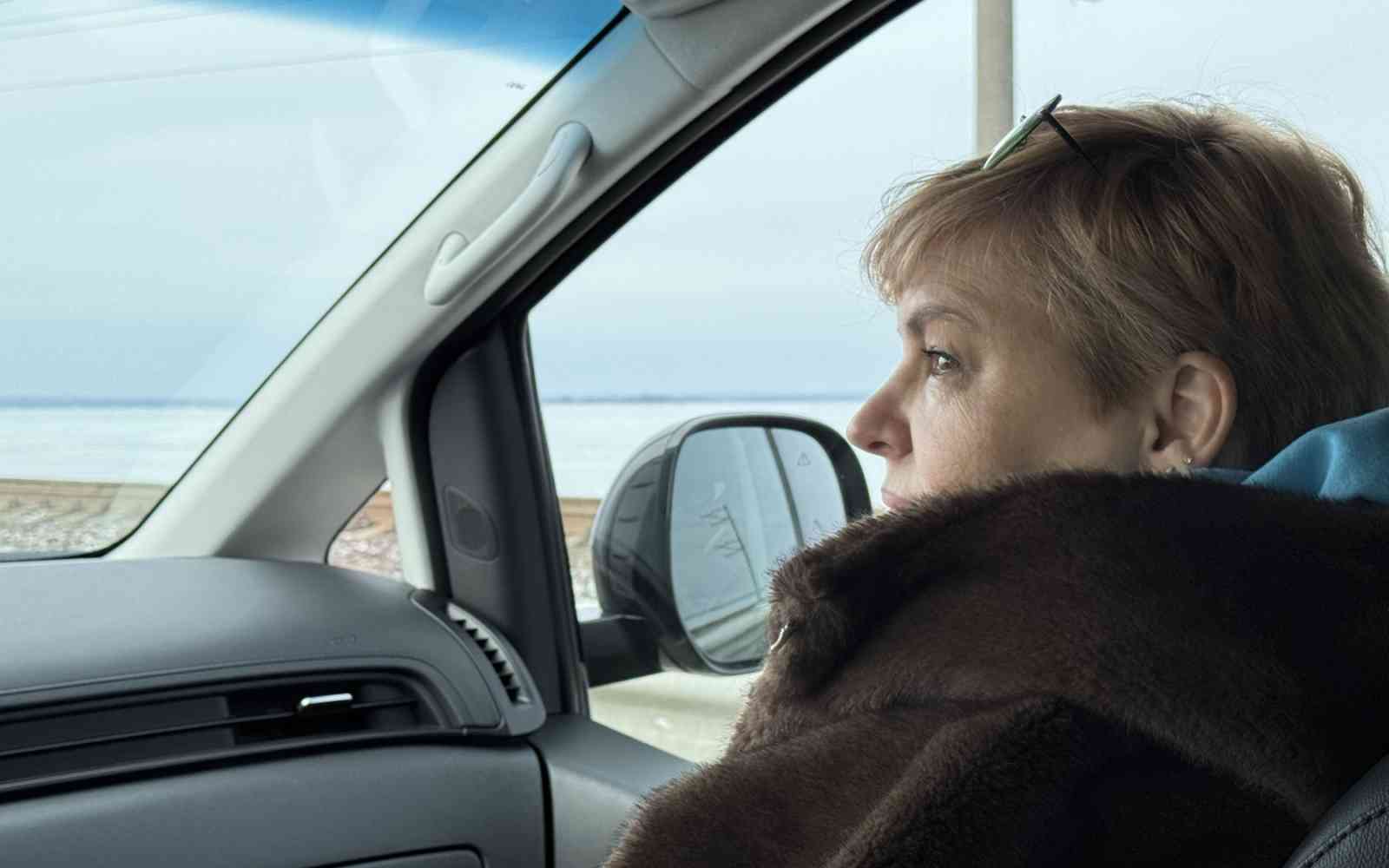The United Nations Office for Project Services (UNOPS)
Global challenges and opportunities for the private sector
Speech by Grete Faremo, Under Secretary General and Executive Director of UNOPS at event co-hosted with the Ministry of Foreign Affairs Denmark, 5 November 2017
[Check against delivery]
I am very happy to welcome you to this event with the Danish Ministry of Foreign Affairs. We are here to discuss global challenges and opportunities for the private sector. More specifically, how we can work together to bring the private sector on board.
the format of this morning's session is simple. I will provide an overview on where we stand. After this, any comments you may have are welcome. Please save any questions you may have for the end. I will do my best to provide answers.
Let me begin by introducing my organization – UNOPS. In the UN we are focused on implementation.
Across the world, we design and implement around 1,000 projects a year – often in some of the most challenging environments – in places like Afghanistan, Myanmar, Somalia, and South Sudan. The list goes on.
We do this on behalf of partners. They include the UN family, the multilateral development banks, governments and the private sector. And as the UN Secretary-General has noted, our challenges today are about building a more sustainable future for all.
But before I jump into this topic, it's important to understand the context of this event.
We have reached an interesting point in global development.
In 2015, the UN Member States adopted the 17 Sustainable Development Goals (SDGs). Last year, these 17 Global Goals came into force.
They are a universal call to action – to end poverty, protect the planet and ensure that all people enjoy peace and prosperity.
These are the goals of nations. Across the world, there has never been such broad consensus on our global priorities.
Yet at the same time, the world's challenges have never been so complex and interconnected. We see refugee crises, war and threats of famine.
Driven by conflicts in Africa and the Middle East, the number of people in need of humanitarian aid has increased again.
In Yemen alone, millions are threatened with starvation.
Next year, 135 million people are predicted to need humanitarian assistance around the world.
A record $22.5 billion in humanitarian aid is needed for 2018 – that's more funding than ever.
So as we sit here today, we are living in times of both consensus and crises. Our challenge is not to separate these realities, but to ask how we can address both.
How can we achieve our Global Goals, in a way that responds to immediate needs? And perhaps more importantly, who do we need to work with to make sure that can happen.
Sustainable Development Goals
It is worth reminding ourselves of some of the goals governments have agreed to.
Goal 6: Ensure availability and sustainable management of water and sanitation for all.
Where are we today when it comes to this goal? 780 million people lack access to drinking water. 2.5 billion people do not have access to adequate sanitation. 6.8 million people die annually from water-related diseases.
Of course, lack of adequate sanitation affects everyone. But it particularly affects women and girls. Safe water, basic sanitation and hygiene could have significant impacts on reducing maternal deaths.
Next, Goal 8: Promote sustained, inclusive and sustainable economic growth, full and productive employment and decent work for all.
Again, here are the numbers: Last year, 71 million young people were unemployed. And by 2030, globally, 470 million jobs for new entrants to the labour markets may be needed.
Let us move to Goal 9: Build resilient infrastructure, promote inclusive and sustainable industrialization and foster innovation.
Here are two challenges that relate to this goal: 828 million urban residents now live in slums, and in African countries, infrastructure constraints affect company productivity levels by 40 percent.
Given last month's climate change conference in Bonn, let's look at Goal 13: Take urgent action to combat climate change and its impacts.
Nations agreed to keep global temperature rise well below 2 degrees. While progress was made in Bonn, the world remains on track to see global temperature rise by at least 3 degrees. This would lead to catastrophic impacts around the world.
Finally, the goal that this event is focused on, Goal 17: Strengthen the means of implementation and revitalize the global partnership for sustainable development.
The financing aspects of this goal alone are revealing. Last year, development aid reached a new peak: More than $142 billion, an increase of 8.9 percent from 2015. Over the same period, more than 40 percent of the nearly $1.75 trillion worth of global foreign direct investment flows was directed to developing countries, providing much-needed private capital.
Yet needs remain immense. In infrastructure alone, the World Economic Forum estimates that $60 trillion will be needed by 2030.
Opportunities
These examples demonstrate the scale of the challenges that face us. While the SDGs reflect unfilled needs and great inequalities, they can also present opportunities.
Opportunities for improvement in health, food security, jobs and prosperity – for people and the planet – as well as opportunities for those providing products and services; a chance to meet needs beyond local and traditional export markets.
With 200 million people aged between 15 and 24, Africa has the youngest population in the world. Current trends indicate that this figure will double by 2045. By then, two-thirds of the world's population will also be living in cities.
This will require large infrastructure investments to ensure access to water, transport, and Information and communications technologies. In this area alone, climate change will require green growth solutions that rethink energy and agriculture, transport and buildings.
So how can we help each other address these opportunities?
We know that businesses often cannot succeed in difficult geographies. That's why the private sector goes towards the lowest risk and the easiest return.
But to effectively involve the private sector, we must change this approach. We must break down the barriers that prevent business solutions from reaching their full potential.
This is where we will find the value of new partnerships. And it's where the UN comes into the picture.
We have decades of experience working in these locations. We can bring this to the table – and in doing so, reduce the risks and increase the chances of success.
UNOPS has broad experience building national institutional capacity to further transparency and accountability.
We are familiar with national legislations, and if companies go together with the UN, they can be sure there will be less corruption, and fair and transparent processes.
Our experience can essentially de-risk investments by creating the frameworks based on this knowledge, as well as the conditions in the field to be able to invest.
We can transfer this knowledge to the private sector.
Investment
It's clear that investment is a critical challenge for the Sustainable Development Goals. We know that traditional ways of financing development alone are insufficient.
Official development assistance from the most developed countries offers a fraction of what's needed. The average annual shortfall is $2.5 trillion.
Donors, recipient governments and the UN need to move away from tackling individual development issues through direct donations and stand-alone assistance.
This shift from direct assistance calls for new business models and innovative ways of thinking. Governments can play a mobilizing role to make this happen, including by using development funding as a catalyst for private sector engagement.
And that is key. At the heart of this approach is a blend between public and private interests. Put simply, development actors and the private sector need each other.
The SDGs need the business community to seize the market opportunities they open up.
And I would argue that the SDGs offer compelling long-term growth strategies, for individual businesses and for the global economy.
UNOPS and Denmark
Now let me focus closer to home.
As the leader of a UN organization headquartered in Denmark, it gives me great comfort to see the Danish Government moving ahead in this area – we are perfectly aligned.
Through their initiative on partnering for green growth and the Global Goals, Denmark supports meaningful, principle-based partnerships.
This kind of support for global public-private partnerships that catalyze investments in developing and middle-income countries is essential to reach our global goals.
Bringing together governments, companies, cities, think tanks and investors in this space is a necessity.
UNOPS understands the private sector well. We work in a similar way. UNOPS is a self-financed UN organization, covering our costs through the services and projects we deliver on behalf of our partners.
We delivered $1.4 billion worth of services last year, and pride ourselves in combining the speed and efficiency of the private sector, with the commitment and values of the UN.
You may not be aware, but in addition to being based in Copenhagen, the President of our UNOPS Executive Board this year, Ib Peterson, is also from Denmark.
Under his guidance, we have developed our own strategy, which seeks to drive efficiency and effectiveness, and to encourage efforts to bring more resources to the table, in support of the SDGs.
At UNOPS, our role is to help facilitate the opportunities of the private sector, so that action is happening where action is needed.
And when it comes to action, or implementation, we are well placed to understand each other. UNOPS can facilitate – be the catalyst – for broader networks.
UNOPS and Denmark have also worked together for many years.
In 2014, for example, in a project funded by Denmark, we trained people in the Kurdistan Region of Iraq on human rights and best practices in partnerships between government and civil society.
That led directly to the adoption of a compact between public authorities and non-governmental organizations in the Kurdistan Region of Iraq, the first formal policy on cooperation ever adopted in the Middle East and North Africa region.
In Myanmar, Denmark contributes, with other governments and Mitsubishi, to the largest health fund across the country. UNOPS manages this fund. Commitments have exceeded $280 million since 2012.
In addition, we have built 82 health centres across the country, bringing maternal, newborn and child health services to some of the hardest-to-reach areas.
UNOPS and the private sector
When it comes to forging alliances to implement the SDGs with the private sector, I can also share a few examples.
At UNOPS, we work with companies to co-develop solutions and jointly deliver development projects, leveraging our areas of expertise and knowledge.
An example here is our work with Miyamoto – global structural earthquake engineers. Working together, we developed an application for quality assurance in infrastructure projects. This enables local engineers in rural hard-to-reach areas to connect with specialized earthquake engineers to receive feedback when evaluating damaged structures.
The solution enables data analysis, information sharing and collaboration across projects and organizations.
Using this technology, we have helped survey hundreds of homes and communities across Nepal.
Another example is our global partnership with Accenture. This enables us to bring our complementary strengths together to deliver joint advisory projects.
Specifically, this partnership agreement includes developing and implementing joint proposals and projects in areas such as supply chain management and digital technology; supporting the raising of funds and mobilization of resources for joint projects, including proposal preparations and approaching donors and clients; and sharing knowledge, information, proven practices and techniques to enhance each other's ability to propose advisory solutions for partners.
Procurement
Of course, procurement is an area of our work where the private sector already plays a vital role. In this sense, the UN already relies on private sector innovation to function.
Last year the UN procured goods and services exceeding $17 billion. From this total, 850 Danish companies supplied more than $700 million worth of goods and services. These included pharmaceuticals, contraceptives and vaccines, as well as transportation, storage, mail services.
Denmark's growth in this regard exceeded 30 percent last year. This makes Denmark the 5th largest supplier to the UN System. In contrast with other Nordic countries, Norway is the 50th and Sweden is 73rd.
Yet there are still many untapped opportunities for Danish companies.
The majority of UNOPS work is delivered in fragile states. Today, we are active in responses to emergencies in Syria, Yemen and Iraq, and we know emergencies make already fragile communities even more vulnerable. Rapid responses are critical. Yet we don't always know what will be needed, or how long, until the last minute. UNOPS, and the UN at large, needs solutions that can address unpredictable needs.
Conclusion
To conclude, with the SDGs, we have consensus on where we should go together. It's not just the development sector, but includes governments, academia, non-governmental organizations and the private sector. The SDGs challenge us to look for new models of collaboration.
For this to work, transparency and accountability will be vital – two distinguishing aspects of both the Nordic countries and core UN values.
The SDGs require an adjustment that businesses need to make – in target markets, partnerships and most of all, the values businesses represent and the solutions they offer.
We must all adjust to this reality – in the markets we support, the partnerships we forge and, most of all, in the values and solutions we offer.
In short, we need the private sector's skills, innovation, technology and investments.
And to involve the private sector in the SDGs, we need to help them understand that the SDGs are not challenges but opportunities.
To align with the SDGs, we need to make the connection that the biggest challenges present the biggest opportunities.
If we work together, we can be a catalyst.
This is our fifth event in a Nordic capital on engaging the private sector for the SDGs through new partnerships.
Events like this that offer the chance to share our experiences, knowledge and issues go a long way towards helping us all work better together.
Ultimately, the Sustainable Development Goals are our goals.
Global challenges affect businesses as well as countries and communities, and it is in all of our interests to address these challenges.
Let's do it together.
Thank you.










